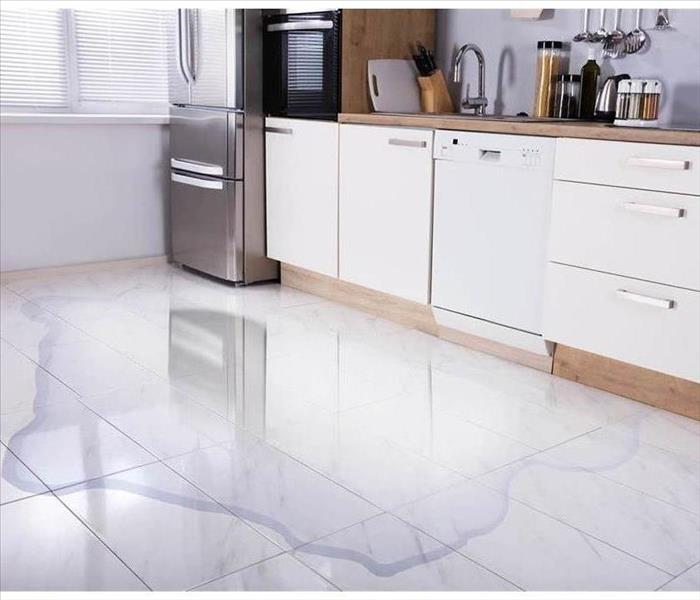3 reasons your fridge may leak
4/21/2021 (Permalink)
Your kitchen has a lot of appliances and fixtures that can develop water leaks. The sink, refrigerator, dishwasher, and water cooler are all potential sources of water damage. One of the most concerning appliances in this respect is the refrigerator. Refrigerator and ice maker troubles tend to start as very small leaks. Most leakage occurs in the back, normally out-of-view. A leak can continue for a long time before it is noticeable, and has caused substantial damage. The three most common sources of leakage from a refrigerator are improper leveling, drain blockage, or the water supply line for the ice maker.
- Refrigerator Leveling Problems -
If you get a new refrigerator, or installing new flooring, you should always double-check the level of the refrigerator when you put it back. The front of the refrigerator should be between a quarter-inch and half-inch higher than the back. This helps front-to-back tilt and enables coolant to flow freely. If coolant cannot circulate properly, it may pool in the pipes and force the fridge to work harder. This can create extra condensation around the coils, resulting in water dripping on the floor.
- Inspecting for Defrost Drain Blockage -
The defrost drain (located on the back of a freezer or refrigerator), should be checked to make sure it is not blocked by ice or debris. Flush out the drain hole with 1 teaspoon of baking soda mixed into hot (but not boiling) water. As a preventative measure, you can perform this flush once or twice a year.
- Checking the Water Supply Line -
Flow problems on your water dispenser, or erratic ice production, could be signs of a leaking supply line. Pull the refrigerator away from the wall and inspecting the line and its connections. Be careful not to pull the refrigerator too far away, as it could put strain on the fittings, and cause damage.
If you notice floor swelling or warping around your refrigerator, or paint bubbling on the surrounding walls, you should perform the above inspections to find what is causing the damage. Once you have the source of the water stopped, contact SERVPRO of Casper to evaluate and repair the damaged area.




 24/7 Emergency Service
24/7 Emergency Service
